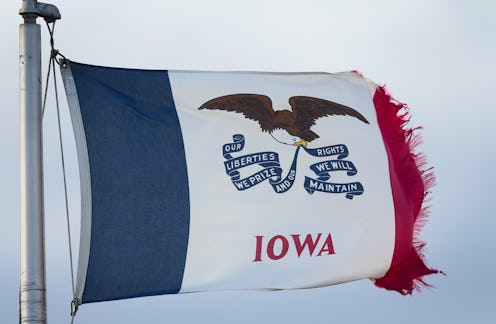Iowa, the sleepy agricultural state that grows a lot of corn, is mostly exempt from the commotion of big city life and celebrity attention ... at least, until the presidential election season rolls around every four years. Iowa's caucuses have rendered it a star in the political world. It's why Donald Trump is becoming more adamant in questioning Ted Cruz's eligibility to run for president. It's why Hillary Clinton and Bernie Sanders are debating each other more aggressively than before. The Iowa caucuses are scheduled for Feb. 1, and as they quickly approach, the competition among candidates is becoming increasingly fierce. Iowa polls have even become a determinant of which candidates can participate in the main debates. But with another 49 state caucuses happening in the near future, what makes Iowa so special?
We'll start with what a caucus actually is. It's basically a more involved form of casting votes, but it has some strange components. In over 17,000 precincts (schools, churches, etc.) statewide, neighboring voters sit and discuss candidates. From there, they either raise their hands in favor of certain candidates, break into groups according to whom they support, or cast votes on paper. The resulting selection of delegates proceeds to the county convention, then the congressional district convention, and lastly, the state convention that's held in June.
Republican Vs. Democratic Caucuses
The process differs greatly for the Republican and Democratic parties. For the Republican caucuses, GOP candidates can be present at the site, and even make speeches to the voters immediately before the ballots are cast. Also, members cast their ballots secretly. The tallies are recorded, and delegates are sent to the convention in groups correlating to how many votes are cast for each candidate.
The Democratic Party, on the other hand, pays no attention to turnout. Instead, the number of delegates sent to the convention depends on the last two elections' Democratic turnout. The Guardian points out that this means five or 500 party members could show up to the caucus and the number of delegates sent wouldn't differ. The set number of delegates are proportionally split between affiliation with the most popular candidates, each of whom must be supported by at least 15 percent of the caucus-goers. Instead of privately casting their ballot for the Democratic candidate, members must stand in groups that correspond to their candidate choices.
Why Are Iowa's Caucuses So Important?
Iowa isn't the only caucus state; it's just the first in line to elect delegates. In fact, nine other states in the U.S. rely solely on caucuses. Most simply, Iowa's caucuses mark the first election of the season. They set the pace for the upcoming elections, and reveal to voters which candidates are in the lead. Additionally, the result of the Iowa caucuses allow candidates to gauge how successfully they're appealing to their constituency.
This wasn't the case until 1972, when the Democratic National Committee changed their rules so that party bosses had to announce primary and caucus dates at least 30 days in advance. Since the caucus process in Iowa consists of several steps, campaigning had to start especially early. The Republican Party soon followed suit, and after Jimmy Carter gained popularity in the state and ultimately won the presidency, Iowa gained a shiny new reputation among politicians.
Does Iowa Predict Who The President Will Be?
According to The Washington Post, Iowa likes being first to help determine the political frontrunners. If other states move their primaries forward, Iowa makes sure to one-up them and remain in the top spot. The Washington Post's Ezra Klein interviewed University of Iowa professor David Redlawsk about the process. He explained that the Iowa caucuses aren't always representative of the final national election results:
It teaches them to build a grassroots campaign. Those who do well get to move forward, and those who don’t drop out. That said, in the last few cycles, Iowa has played a very significant role. There’s no question that it launched Obama. But in the end, it’s not so much winning Iowa as it is generating attention because you beat expectations.
How Do Caucuses Differ From Primaries?
Not only are caucuses more complex than primary voting, but they're also more open. In a caucus, party members can openly voice their support for a candidate, and explain why they represent the party's platform. This hugely diverges from the ballot method, in which voters are expected to remain silent while casting their votes and resist attempting to influence others.
Furthermore, in caucus states, registered voters can only participate in caucuses affiliated with their party of choice. Closed primaries also only allow registered party members to vote for members within their parties. Meanwhile, voters in open primary election states can cast a vote for their choice across both parties. In other words, a Democratic voter could cast a vote for his or her favorite Democratic candidate and also one for the Republican candidate he or she thinks is least likely to be elected. In that sense, the caucus system is more straightforward and collaborative. Ultimately, both forms of voting result in the selection of delegates. They simply go about it differently.
